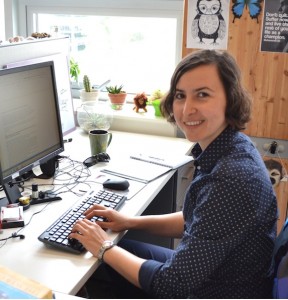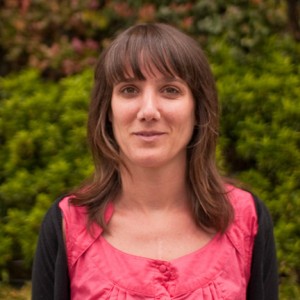IRES Seminar Series
Time: 12:30-1:30 pm
Location: AERL Theatre (room 120), 2202 Main Mall
Sustainability through Practice: Examining Waste Diversion Efforts, Barriers and Solutions
Ivana Zelenika
Abstract
The University of British Columbia is matching Metro’s target to divert 70% materials from landfills by 2016 and 80% by 2021. Given that both Metro Vancouver and UBC’s waste diversion rates are currently at 55%, there is a need for research on effective mechanisms and strategies to help achieve the 80% diversion target for the region.
This talk will present research objectives and the theoretical framework of my thesis, research completed to date, as well as research in progress. One goal is to examine the influence of infrastructure design and layout as a pro-environmental behaviour setting strategy with an emphasis on convenience, simplicity and usefulness. The other goal is to examine the key elements that enable behaviour in culture dependant inter-locking arrangements consisting of physical artefacts, meaning and knowledge/ skills. Persistence and consequences of engaging in waste diversion are also explored.
Bio
Started the PhD studies in 2012, working with co-supervision of Dr. Jiaying Zhao and Dr. John Robinson. Prior to coming to UBC completed a Master’s of Environmental Studies at Queen’s University (Kingston), and a B.A. from Carleton University (Ottawa) in Environmental Studies, minor in Political Science. Research interests are in Applied Sustainability, Sustainable Social Change, Biomimicry and Innovation through Collaboration. Research is supported by the SSHRC Doctoral Fellowship and the UBC 4 Year Fellowship.
Active member in campus life, I was a member of the Common Energy at UBC and served as a Zero Waste coordinator with Campus Sustainability office for 2 years in a work-learn position. Previously at Queen’s University I was a Sustainability Coordinator for the Graduate Society and helped establish a community garden and bring 11MW of electricity generating PV panels to the University’s portfolio.
City Stories: From narrative to practice in Vancouver’s Olympic Village
Lisa Westerhoff
Abstract:
Vancouver’s Olympic Village is both an iconic development in the City of Vancouver and a globally recognised attempt at creating a sustainable urban community. Its final form as it stands today represents the culmination of nearly 2 decades of planning and design, a process that was fraught with raucous debate and financial woe along the way. But how has the neighbourhood’s vision actually unfolded in practice? In my dissertation (and in this presentation), I tell the story of this unique urban development from the perspective of some of the many voices that have created it: the people who live and work there. By combining narrative with insights and methods from social practice and place theories, I explore how the sustainable intentions of the Olympic Village are playing out in the lives of its residents and managers, which show that the Village’s particular narrative of sustainability has intervened into residents’ and managers’ practices, perceptions and identities in interesting ways. I conclude that while the neighbourhood has been instrumental in pushing sustainability efforts forward, it nevertheless missed key opportunities to address the expectations and experiences of its future inhabitants.
Bio:
Lisa Westerhoff recently defended her PhD in Resource Management and Environmental Studies at UBC, working under the supervision of John Robinson. Her work interrogates the different narratives of climate change and sustainability adopted by different groups and at different scales, and their implications for citizen engagement and decision making around sustainability in the built environment. Prior to her PhD, Lisa worked as a Geography instructor at the University of Guelph, as well as a researcher on EUR-Adapt, a four-year project on multi-level governance in climate change adaptation at Umeå University in Sweden. She holds an MA and a BA in Geography.

